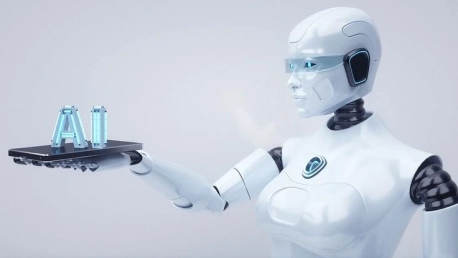Despite the undeniable advancements in technology, the image of a modern warehouse remains surprisingly old-fashioned, with manual processes at the heart of operations. Conventional automation systems are still not the norm due to high costs and complexity. Generative AI could address these constraints by introducing more adaptable, intuitive, and cost-effective solutions, increasing the appeal and feasibility of automation across the industry.
High Costs and Complex Implementation
High costs and complex implementation are prevalent challenges in warehouse automation. Generative AI is significantly slashing costs and simplifying complex tasks associated with automation. Due to its adaptability, businesses can look forward to reduced initial capital outlay and ongoing maintenance expenditures, offering a more economically sustainable model for integrating state-of-the-art machinery in their operations.
Operational Re-engineering Challenges
Generative AI is offering flexible solutions that adapt to each warehouse environment, thereby circumventing the need for extensive reorganization. The technology ensures minimal disruption, supporting organic growth and subtly integrating operational details into its functions for widespread, efficient automation.
Enhancing Decision-Making Capability of Machines
Independent Adaptation and Perception
Advancements in AI are creating robots capable of independent interpretation and reaction to their environment. This technological leap allows for greater autonomy in daily warehouse operations, leading to improved efficiency and productivity.
Return on Investment for Automation Projects
Generative AI is positively impacting the return on investment for automation projects by eliminating the need for regular updates and infrastructure overhauls. Its self-learning and adaptive nature prolongs the lifespan of the technology, yielding a higher return on investment.
Simplifying Robotic Programming and Operations
Intuitive Programming Languages and Commands
Generative AI interfaces are simplifying the programming process, making it accessible for employees with varied levels of technical expertise. This advancement is leveling the playing field for smaller businesses, unlocking the potential of automation without the need for specialized knowledge.
Anticipating Changes in Workflow
With predictive adaptability, generative AI enables robots to adjust their operations in real-time, effectively bridging the gap between static programming and dynamic decision-making required in a constantly evolving work setting.
Enhancing Interactions Between Humans and Machines
Navigational Adaptability and Communication
Generative AI is enhancing the navigational abilities of machines, allowing for human-like maneuvering and communication within warehouse environments. This fosters a collaborative workspace where humans and automated machines can work in synergy.
Lowering Adoption Resistance
The more human-like behavior of machines and their focus on enhancing safety is crucial in lowering discomfort and resistance among warehouse workers, facilitating the adoption of automation technology.Generative AI is setting the stage for a revolution in warehouse automation by fostering a relationship between human intelligence and adaptable AI-powered machines. This technological advancement promises robust and resilient operations, breaking down traditional barriers and driving competitive advantages in warehouse management.









